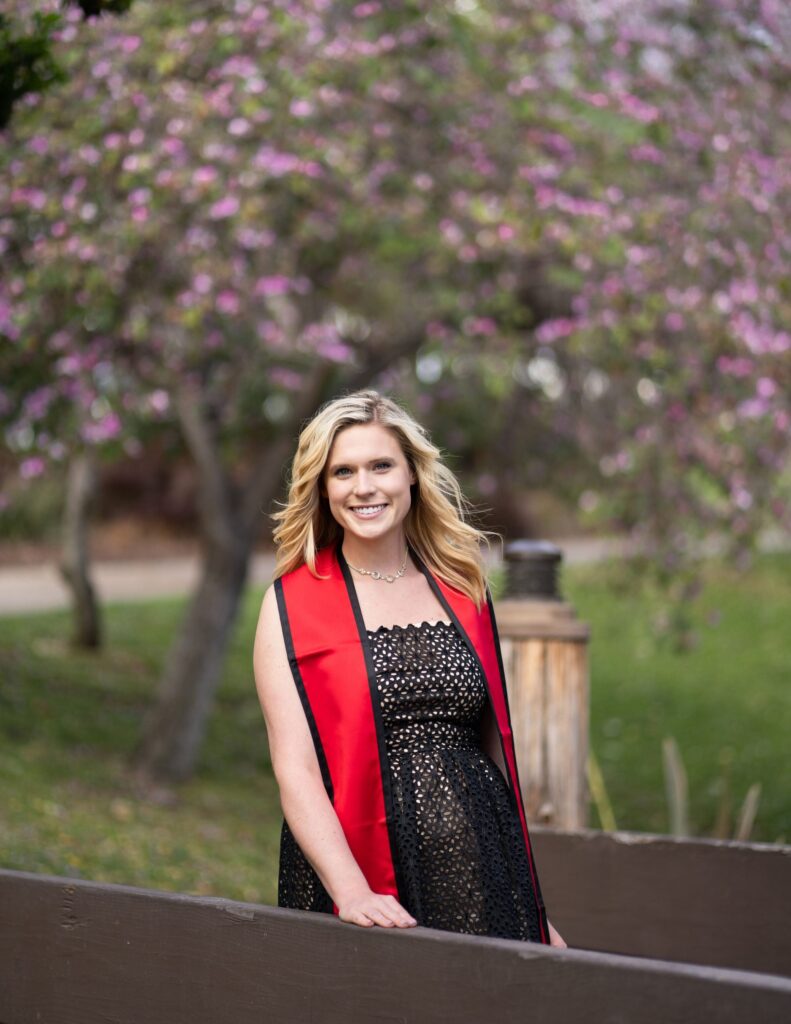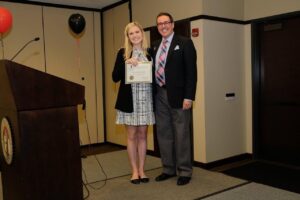September 6, 2019
Alumna finds inspiration through traveling, work in health communications
Jerri Strickland has found inspiration in many places. After the Honors College alumna received her Bachelor of Science in communication with a minor in science from East Carolina University in 2017, she received her Masters from San Diego State University in communication with an emphasis in health.
Currently, Strickland works for two public health research centers, The Center for Communication, Health, and the Public Good (CCHPG) and the Thirdhand Smoke Resource Center. She cites her work with both centers as an inspiration for her to continue her education and to pursue her PhD in Health Communications so one day she could lead her own campaigns focused on reducing disparities in healthcare.
While pursuing her graduate degree, Strickland had the opportunity to study abroad in the Czech Republic, Germany, Switzerland, and Italy. While overseas, she helped to design a health campaign for German men to eat a more balanced diet and was a caretaker for an eighty-year-old Greek woman. “My experiences have helped me realize that traveling expands the mind and you shouldn’t limit yourself to research opportunities,” she said.
However, her time in Europe helped her understand the importance of collaborative research. “Collaboration among scholars and interdisciplinary research is quickly becoming the new standard for applied endeavors,” she said.
Strickland’s own research delved into health campaigns, message design, and doctor-patient interaction. For her thesis, she explored how cancer patients use the word “time” and had access to over two and a half years of conversations between an oncology patient, her family, her friends, the doctors, nurses, and other medical staff. She found that patients use conversations revolving around time to express complex emotions. “Our hope is to take this study and apply it to continuing education for medical professionals to shed light on how conversations as seemingly trivial as the length of an upcoming appointment can provide insight into the emotional wellbeing of a patient,” she said.
Strickland credits the Honors College’s help in fostering relationships with her undergraduate professors as one of the reasons she is where she is today. “Without those relationships, I would never have switched my major to communication, studied abroad in undergrad or gotten an introduction to research,” she said.
When asked what advice she would give current Honors students, Strickland said students should be self-reflexive. “A lot of students become so goal-oriented that they get tunnel-vision. You have more than one potential path in life, and you don’t get there, wherever that is, in a straight line,” she said. “Make sure you have are regularly asking yourself if you are passionate about what you’re doing.”
- Categories:
- Alumni
- Honors College
- News


